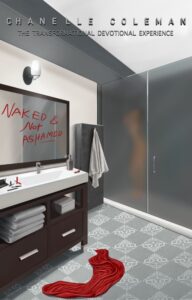Stranded on Castaway Island
Amy Laundrie
Young Adult Adventure
April 2022
Henschelhaus Publishers
262 ppg
Print $9.95
Ebook $8.95
Buy on Barnes and Noble or Amazon
My Review:
Book reviews, author interviews, thoughtful commentary with Lisa Lickel and friends


![]()

![]()
Tony instantly began screaming and yelling. I continued to bite down harder. I continued biting and grinding my teeth until I couldn’t bite anymore. I let go. He fell back onto the bed. I jumped up out of the bed, my heart was pounding, terrified I opened the door, and I was met with darkness. Hurriedly I ran out past the dining room, through the hallway to the kitchen. Panicked, I reached the back door. I began pulling on the door, but it was locked. Fear seized me as I began fumbling with the knob trying to unlock the door. The latch finally twisted up and I raced up the back-hallway stairs. At last, there was light. I ran as fast as I could through the open kitchen door. The light continued to welcome me as I forged ahead running through the hallway past the bathroom and my aunt’s and grandparent’s bedrooms, the dining-room and into the living room to the couch where my grandmother was sitting. I distinctly remember her shocked expression as I pounded towards her as she sat there speechless, on the couch holding my baby brother. I felt relieved and a sense of security momentarily came over me until my grandmother spoke. She stared at me, with her mouth opened in shock. She screamed, “Chanelle, you’re naked! Where are your clothes?” Momentarily, I had forgotten that I was naked, but the awful realization of my nakedness began to cover me like a garment. It was the evidence of my pain, humiliation, and fear. I stood there breathlessly as I gasped, painting for air, naked and ashamed, I told her my story.
![]()
![]()
Tour organized by Write Now Literary Book Tours

Buy on Amazon, Barnes and Noble,
Publisher book store
About the book
On a video call, Paulina Deacon watches her friend follow a
frenzied murder of crows through the woods. Moments later, Pauli is horrified
when John stumbles upon three men and is murdered. In fear for her own life,
she drives until she finds herself in the small town of Brier, Wisconsin. She
reinvents herself as Polly Madison and is quickly hired to work doing odd jobs
at a rehabilitation clinic.
Hal Karlsen has poured his life in to the Sweetbrier clinic
helping people with addictions. When Polly arrives with her secrets, he is
equal parts irritated and intrigued.
Terror follows Pauli to this small town and grows stronger each day as she
finds her place in the tiny, welcoming community. Slowly, she begins to open up
to Hal. As they work together to uncover exactly who is after her and why,
their friendship deepens.
He pledges to keep her safe. She swears to protect the clinic. But can either live up to those promises while the danger increases daily? And will those murderous crows drive her mad before they figure it all out?
My Review
Crows gather at the oddest times for the most intriguing
reasons. When they flock at the apparent murder of her current crush in a back wood
in North Dakota where Pauli had been substitute teaching and coaching, she
naturally relates the behavior to peril. After trying to place calls to the
sheriff and not knowing what else to do, Pauli drives across two states until
she comes to a tiny town in Wisconsin that seems a safe harbor until she can
sort out the oddness of her life.
Restrictions on contact with the outside world limit Pauli’s
ability to learn about the events surrounding the murder. When she’s forced to rely
on strangers, however kind and eager to help they are, things begin to unravel
in her new little world of honesty, faith, and odd jobs, exercise and knitting
classes at a local institution helping everyone from the rich and famous to every-day
folk with their addictions. Crows continue to flock at times of danger, and
when the stakes deepen, Pauli must decide who and how much to trust. Trust isn’t
just a conditions between humans, she realizes. Matters of faith and putting
her trust for her soul in the right place is her best therapy. The rest is
frosting.
Anita’s story of rescue and finding home in a place of strangers all trying to heal together is a delight. Readers who enjoy tales of adventure and peril wrapped up in love and faith will love A Murder of Crows.
About the author
Good stories are her passion, especially if they are
well-written, have a dose of humor, just a tickle of romance, and a decidedly
non-gory mystery. On the other hand, she lists Frankenstein and Fahrenheit
451 as two of her favorite books. Go figure.
Creating skits was Anita’s first foray into writing. Always
up for a challenge and a reason to postpone defrosting the freezer, she tried her
hand at a full-length novel. It only took five years, but she did it!
Join me and several others in this Western romance special promotion. Sign up for the giveaway.
Enter to win a $40 Amazon US or Amazon Canada gift card
Rafflecopter Direct Link –
https://www.rafflecopter.com/rafl/display/92db7750165
Event Link –
N. N. Light
Website: https://www.nnlightsbookheaven.com
N. N. Light’s Book Heaven is a heavenly place for authors and readers to connect, discover new books, and share their love of reading.
Take your book marketing to the next level -- 60 million social media reach and growing
Amazon Vine Voice Reviewer and Verified Influencer
Freelance Editor and Graphic Designer
YouTube: https://www.youtube.com/channel/UCWer5Z3i---Lv3Hi-SNgxmw
About the Book:
My Review:
I appreciate the examples from
science and history about how theories of elements, disease, and energy have
evolved as the methods of testing improved; how the Lincoln-Douglass debates of
the mid-nineteenth century US show that complexities of context shape public
opinion, echoing down through the generations.
Moving beyond bickering can only happen when people are willing. “Reason does not work on those who embrace irrationality,” Hushbeck points out. “For some, truth is just a power structure, a tool for oppressors to use on the oppressed.”
Offering plenty of advice for defining and refining disagreements and errors and avoiding repression and censorship, Seeking Truth is not an answer, but a process. Reaching a common goal is a commitment, a constant testing of theory and practice, and keeping communication open. “Hopefully, if a side consistently loses because of bad arguments, they will seek to develop better ones. As a result, the level of discussion will improve.”
We are fallible, Hushbeck concludes, but learning better arguments “can only improve the process of seeking and bringing us all closer to the truth.”
Mr. Hushbeck's background includes academic studies in religion, history, and engineering, culminating with a Bachelor's Degree in Electrical Engineering, and Master's degrees in both Christian Apologetics and an MBA/Technology Management. As an engineer, he worked for several engineering and technology firms, including five years at NASA's Jet Propulsion Laboratory in Pasadena. There he was part of a team developing a high accuracy GPS receiver. He was also part of the Voyager Flight Team for the encounter with the planet Neptune. His wife Hanna also has dual Master's degrees, one in Nursing with an emphasis in Informatics, and the other in Applied Computer Science. From 1999-2007 they owned their own company, which designed and developed databases and custom software applications for small businesses.
Mr. Hushbeck has taught at the University of Phoenix, and most recently for
Rassmussen College. He has taught, among other things, classes in Information
Technology, Computers Science, and Business. He also taught critical thinking
both to students and to other faculty. http://www.hushbeck.com
The Barabbas Legacy by M.D. House
Christians around the globe are preparing for the upcoming Lenten season and the celebration of Easter in a time that is frightening and uncertain for many. In many places Christianity itself is under attack, as is the right of people to freely worship. In this season of reflection and spiritual preparation, what better story to contemplate than the lives of the early church leaders, who spread Christ’s message at a time of great peril and persecution?
In The Barabbas Trilogy, M.D. House has imagined the life Barabbas went on to live after being spared his sentence of death in exchange for Jesus Christ. His journey has intertwined with those of many of the apostles, including Paul, Peter and Luke, as they sacrificed everything to spread the Gospel throughout the world.
Now, author House concludes the story of Barabbas’ life in the final chapter of the trilogy, TheBarabbas Legacy, which follows Barabbas and his wife Chanah as they continue their evangelistic mission across the known world as cauldrons of political and military chaos boil across the Roman Empire.
Meanwhile, the rebellion in Judea has intensified, the Jewish zealots exerting great influence over the minds of the people. General Vespasian and his son Titus aim to put a permanent end to the insurrection. How many lives will ultimately be sacrificed on the great altar of Jerusalem? Can the Jewish nation survive the fulfillment of Jesus’s prophecy? What will become of the Jewish Christians and the apostles and sisters who lead them? And where will Barabbas and his family find lasting peace?
Many of those knives were aimed at Cornelius now. He sighed deeply, just as Nero left his chair and took a position a few feet in front of Cornelius, facing the audience. It was commonly known that a younger Nero had aspired to be a thespian and perform on stage, especially in such a grand theater as the Marcellus. That innocent youth had likely never envisioned this scenario.
“Fellow Romans,” he began in a rich, dramatic baritone. He was nearly thirty, no longer young. He had married at least twice, and one of his wives was dead. So was his mother, on his orders. The apostle Paul had connected with a piece of Nero’s soul, but Paul was not here. Nor was Peter, who had sacrificed himself for the Church. Nor was Barabbas, as far as Cornelius could tell. If he had arrived, he would have announced himself immediately at the home where Cornelius had been loosely confined.